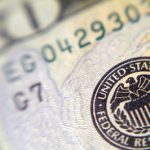Commentary on the Market: 2nd Quarter 2016
Ruben’s Commentary on the Market
Second Quarter Update 2016
The most dominant subjects of the second quarter of 2016 have been whether or not the Federal Reserve Bank (Fed) would raise interest rates and whether the outcome of the BREXIT referendum would keep England in the European Union or have it separate after a 43 year relationship. The results were that the Fed did not raise interest rates and England voted to leave the EU.
Despite beginning the year with indications that they would raise interest rates several times during 2016, the Fed has found itself indecisive about raising rates. The hesitance was caused, most recently, by the weak May jobs report. Only 11,000 jobs were added during the month of May. This was a horrible report and played a major role in the central bankers’ decision to waiver on raising rates. Although job creation is a significant indicator of economic growth, Fed Chair Yellen did state that no one economic report was the key to rate policy. The first week of July presented a very positive June jobs report with 287,000 jobs added. The question is will the Fed raise rates anytime soon? I doubt it. Despite the big one-month jump in hiring, they are still dealing with a slow growth economy here in the U.S. and with low to negative interest rates globally. They are still a bit wobbly on making a decision to raise rates and this nervousness has made the markets uneasy. However, I firmly believe that a decision to raise rates or to leave them alone will have a limited effect on how our financial markets perform in the near-term. This will be further evidenced as I discuss the BREXIT vote.
There has been much attention and concern paid to the issue of whether England would remain within the European Union and what impact would a decision to leave have on theirs and the global economy. The vote to leave caught many believers in a combined European economy by surprise. By a slim margin, English voters chose to leave the EU. There was immediate shock and the global markets plummeted. We have seen many times within the past few years a “Chicken Little” type of reaction by both global and U.S. markets on seemingly bad news without that same news being fully digested. The DJIA alone dropped 800 points over a two-day period. As has happened many times before, within a few trading days later, the global markets calmed when it became apparent that it was not the end of the world and that there were possible benefits for England to not being a part of the EU. For instance, they may now be able to negotiate their own foreign trade deals without needing clearance from its fellow EU partners.
After the brief initial global shock passed, the U.S. markets seemed to have taken the vote in stride and began an aggressive climb to new highs. Nevertheless, there will continue to be some volatility in the investment markets. Volatility is the new order. We live in a global financial society, and we see events around the world that affect us all for differing periods of time. Much is dependent on each country’s economic stability and their ability to navigate rough waters. What seems to get ignored is that we are a global leader. We have suffered through our own man made recession and have fought back economically adding millions of jobs along the way. Most importantly, we are well on our way back to a leadership role. We are a strong innovative society and that is what will continue to drive our markets forward to keep us in a position of global leadership. Our key to success will always be to maintain free market principles and limit government interference. I am confident that as an economy, we are headed in a positive direction. The industry is hiring more personnel and with more personnel comes more wages being spent in our economy. This creates more demand for products and services, which ultimately creates higher profits and higher stock prices.



